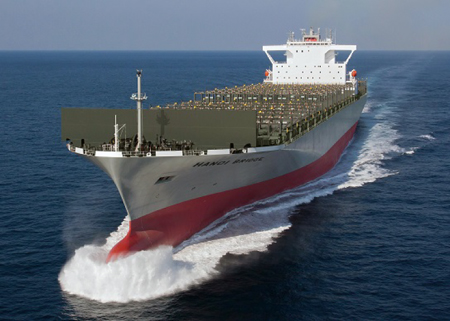News Center

Steel plates play a vital role in shipbuilding, providing the structural foundation for the construction of various marine vessels. These plates are designed to withstand the harsh conditions encountered at sea, including high impact forces, corrosion, and exposure to saltwater. Here's an overview of steel plates used in shipbuilding:
Material Selection: Shipbuilding steel plates are typically made from carbon steel or low-alloy steel. The selection of the appropriate material depends on factors such as vessel type, size, intended service conditions, and classification society requirements.
Strength and Toughness: Shipbuilding steel plates must possess high strength and toughness to bear the structural loads experienced by ships during operation. This ensures the integrity and reliability of the vessel under challenging conditions.
Classification Societies: Steel plates used in shipbuilding must comply with the standards set by classification societies such as the International Association of Classification Societies (IACS). These societies provide guidelines and regulations for the design, construction, and inspection of ships, including the specifications for steel plate grades and qualities.
Grades and Qualities: Shipbuilding steel plates are available in different grades and qualities, depending on their specific properties and applications. Common grades include AH (High-strength hull structural steel), DH (High-strength hull structural steel), EH (High-strength hull structural steel), and FH (High-strength hull structural steel).
Corrosion Resistance: Given the exposure to saltwater and corrosive environments, shipbuilding steel plates often undergo surface treatments or have alloying elements added to enhance corrosion resistance. Coatings and protective measures are employed to prevent rust and ensure long-term durability.
Thickness and Dimensional Considerations: Shipbuilding steel plates come in various thicknesses and sizes to accommodate different vessel designs and structural requirements. Thicker plates are used in critical areas subjected to higher stress, while thinner plates are suitable for less demanding sections.
Quality Control and Certification: The manufacturing process of shipbuilding steel plates undergoes stringent quality control measures to ensure compliance with industry standards and specifications. Independent certification bodies, such as classification societies, verify the quality and performance to guarantee the safety and seaworthiness of the vessels.
In summary, steel plates used in shipbuilding are specially designed to provide strength, toughness, and corrosion resistance while meeting the requirements of classification societies. These plates form the backbone of marine structures, enabling the construction of safe, reliable, and efficient vessels capable of withstanding the demanding conditions encountered at sea.
BBN steel have been steel plate/pipe/coil/round bar manufacturers, stockists, and exporters for over 10 years. We can offer shipbuilding steel plate, flat bar, angle, bulb flat according to ASTM A131 standard. We can also offer nine countries classification society such as LR,GL, DNV,BV,ABS,CCS,KR and RINA. Feel free to contact us if you have any needs for shipbuilding steel plate.
GB T 5312 Carbon and carbon-manganese steel seamless steel tubes and pipes are mainly for ship use, also known as shipbuilding steel pipes. Under GB T 5312, there are mainly 5 steel grades: grade 320, 360, 410, 460 and 490. Each grade covers three levels: I, II, III.
Angle steel, commonly known as angle iron, is a long strip of steel whose sides are perpendicular to each other. There are equal angle steels and unequal angle steels. The two sides of equal angle steel are equal in width. The unequal angle steel is also known as L shape profile steel.
Flat bar steel can be produced according to the user's needs, with fixed thickness, width and length. It can reduce the cutting process for users, reduce the consumption of labor and materials, and also reduce the processing loss of raw materials.
Bulb flat steel for shipbuilding
The bulb flat steel is a kind of medium section material which is mainly used in the field of shipbuilding and bridge building, and the shipbuilding bulb flat steel is an auxiliary medium section material for shipbuilding.
The steel for shipbuilding and oil platform---FH40, is the high tensile strength steel.The shipbuilding steel FH40 is the Hull structural steel.We can provide FH40 shipbuilding steel plate price.
The steel for shipbuilding and oil platform---EH40, is the high tensile strength steel.The shipbuilding steel EH40 is the Hull structural steel.We can provide EH40 shipbuilding steel plate price.
If you are interested in our company or products, welcome to visit our company or local offices; you can also get contact with us through online consulting, demand table submission, e-mails and telephones. Our staff shall wholeheartedly provide product information, application knowledge and good service for you.





 BBN SHIP STEEL FACTORY
BBN SHIP STEEL FACTORY